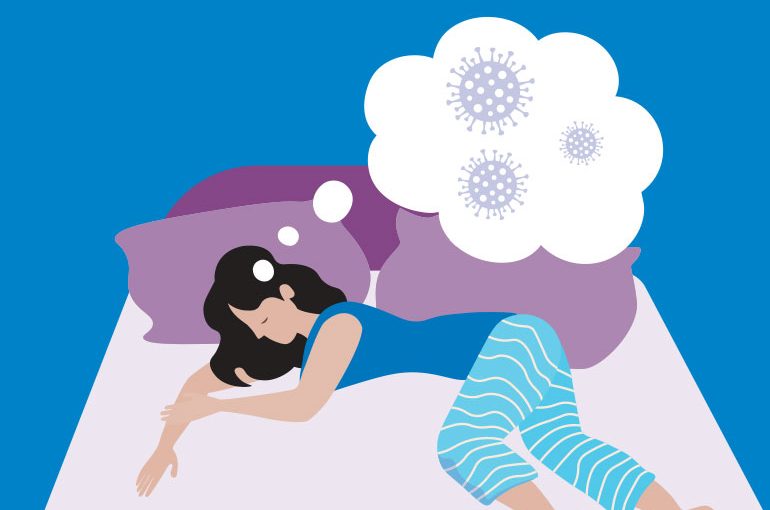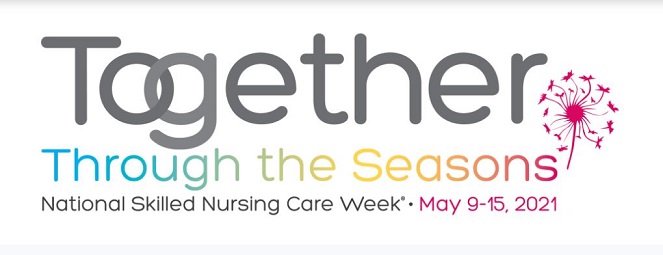From the faculty and staff of the AHCA/NCAL Gero Nurse Prep program.
Tag: GeroNursePrep
Facing COVID With Creativity, Connections, and Resilience
After a devastating storm, the signs of life—children going to school, lights coming on after days of power outages, neighbors talking and laughing—are powerful reminders of people’s resilience and the importance of their connections to each other. Even though the pandemic isn’t completely over, it has led to some changes, innovations, and inspiring stories that should be embraced and remembered moving forward.
One impact of COVID-19 has been a bit of a double-edged sword. The pandemic has shown a spotlight on nursing homes and other long term care facilities. While this has brought some negative and often unfair media coverage, it also presents opportunities.
As James Wright, MD, CMD, a multifacility medical director in Virginia, says, “For a brief period of time, the public was more interested than ever in what goes on in nursing homes, especially with staffing. If we take this interest and harness it into legislative and regulatory changes, we can translate this into better funding and staffing.”
Read more at https://bit.ly/3IUH1RY
Booster Shots for Residents and Staff.
AHCA/NCAL’s Sale on Gero Nurse Prep Ends November 15
- Two fewer deficiencies on average (5.71 citations versus the 7.55 national average in last cycle)
- Fewer Immediate Jeopardy (IJ) citations (1.60 versus the 2.27 national average)
- More stars — nearly twice as likely to be a CMS 5-Star facility (50% versus the 28% national average)
- Significantly lower re-hospitalization rates over the previous six years
- Significantly lower rates of off-label use of antipsychotics over the previous five years
- Significantly higher average SNF Value Based Purchasing scores (44.17 versus 34.42 for the nation).
Time for a Staff Empowerment Check
The pandemic hit staff hard. Personal protective equipment scarcity, staff shortages, required COVID-19 testing, working overtime, vaccine mandates—and the list goes on. Simply put, many staff feel disempowered. This feeling, if not addressed, can lead to further turnover.
Staff empowerment, on the other hand, allows staff to make independent decisions and act on them. Empowered staff are valued and listened to. They stay with their current employers and encourage others to join the team. They have greater job satisfaction. They are happy and want to come to work.
Read more at https://www.providermagazine.com/Monthly-Issue/2021/November/Pages/Time-for-a-Staff-Empowerment-Check.aspx
Creating Seamless Transitions in Challenging Tımes
“The best transition of care is when there is no transition at all.” James Lett, MD, coined this maxim many years ago, and it’s still the mantra of post-acute and long term care providers.
“Of course, sometimes transitions are necessary, so we need to focus on doing this as seamlessly as possible,” says Rajeev Kumar, MD, CMD, FACP, chief medical officer of Symbria in Warrenville, Ill. “Even though we are well into the third decade of meaningful EHR [electronic health record] use, we still have discordant records, and what happens in the hospital doesn’t always filter back to the nursing home, and vice versa.”
Read more at https://bit.ly/3pi1sRG
Gerontological Nurse Training Increases Quality Outcomes!
And Key Performance Measures Prove It!
AHCA/NCAL research shows SNFs with ANCC Board Certified RNs have:
* Higher Average SNF VBP Scores
* Fewer Rehospitalizations
* Fewer Survey Deficiencies
* Lower Off-label Use of Antipsychotics
* Higher CMS 5-Star Ratings
Save $200 through November 15, 2021 with promo code “INSPIRE21”
Find out more at https://www.geronurseprep.com/
Pandemic Takes its Toll on Sleep
During the pandemic, sleep was in short order for many people. In one survey, 56 percent of U.S. adults said they have experienced more sleep disturbances—ranging from problems falling or staying asleep to having disturbing dreams or nightmares—in the past year and a half. In fact, this has been so common, the phenomenon has been given a name—COVID-somnia.
Pandemic-related sleep issues haven’t discriminated. Young and old people alike report some sleep-related problem. Long term and post-acute care centers not only need to identify and address sleep disturbances in their residents but in their staff as well.
See the full article at https://bit.ly/3DWPXE1
National Skilled Nursing Care Week
Careers in Aging Week will be held April 18-24, 2021
The Gerontological Society of America (GSA) hosts Careers in Aging Week every year to raise awareness about the diverse careers available in the field of aging.
People are living longer and populations are aging worldwide. The demand for professionals with expertise in aging is growing rapidly. Careers in Aging Week (CIAW) is observed every year by businesses, clinics, coalitions, organizations, universities, colleges, and other parties across the world. The goal of CIAW is to bring greater awareness and visibility to the wide-ranging career opportunities in the field of aging
For additional information and resources please go to https://www.geron.org/programs-services/careers-in-aging-week









